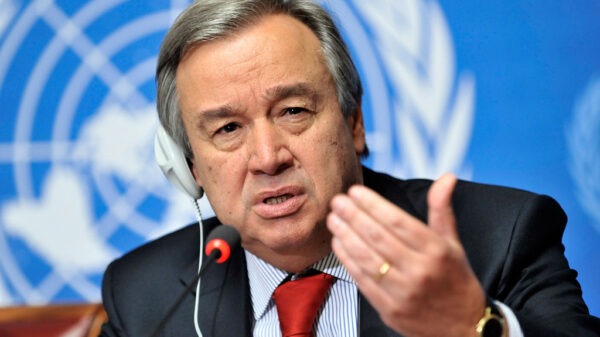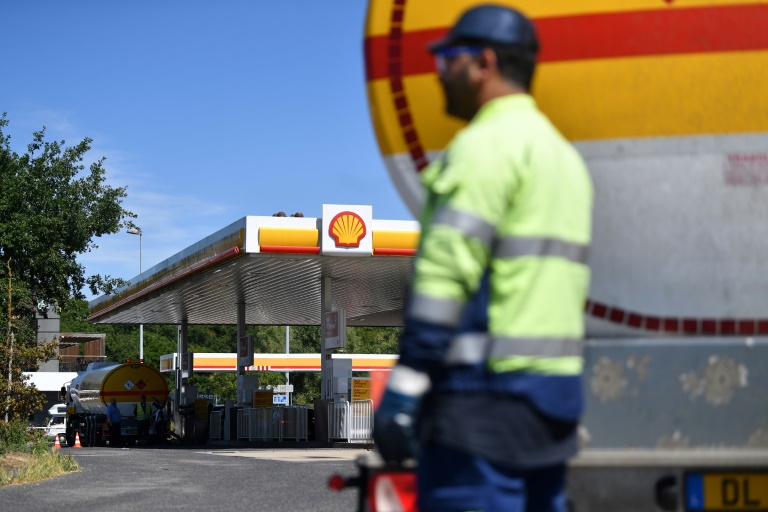NAIROBI, Kenya, Nov 18 – Oil Marketing Companies have dismissed Azimio La Umoja One Kenya Leader Raila Odinga’s claims over the Government to Government fuel deal.
In a joint statement, the companies stated that Under the G-to-G framework, the local Oil Marketing Companies pay for petroleum in Kenya Shillings and are no longer required to source for dollars in the local market.
“Previously OMCs were each required to source for dollars thereby creating artificially heightened demand which would cause distortion in the Forex market and echo to the rest of the economy,” the OMCs stated.
The OMCs dispelled the allegations that the local companies involved in the G-to-G supply don’t pay their corporate taxes, saying it’s a requirement under the Energy Act 2019 and Petroleum Act 2019 that OMCs must obtain a Tax Clearance Certificate.
“A valid Import, Wholesale and Export Licence is a pre-requisite for a company to be a seller of product under the OTS Agreement or the G-to-G Agreement. The tax compliance status of the Nominated Oil Marketing Companies is easily verifiable through the Kenya Revenue Authority,” the statement read.
The Oil Marketing Companies explained that the cost of fuel has continued to spike despite the G-to-G supply due to international oil prices and the prevailing forex rate.
“Global oil prices have been steadily rising due to the global post-COVID recovery in demand, and certainly more with the geopolitical challenges over the last 18 months,” read the statement.
OMC expressed that the depreciation of the Kenyan shilling to the dollar would have been worse were it not for the intervention of G-to-G.
The oil firms insisted that the depreciation of the KES against the US dollar is a result of the macro economic factors not specific to the oil sector including the global strengthening of the dollar and the Federal Reserve Bank of the United States raising rates.
“This is not a purely Kenyan phenomenon. It is instructive to note that the depreciation rate of the Kenya shilling rate would have been much higher were it not for the intervention created by the G-to-G by deferring the demand for dollars by OMCs from the forex spot markets,”the OMC noted.
The local companies elaborated that the G-to-G has not occasioned the move by Uganda to withdraw deal to purchase petroleum products from Kenya because middlemen have inflated prices by up to 59 per cent.
They explained that nominated oil companies discharge and supply the imported fuel to the other oil marketing companies at the same price negotiated by the government in the Master Framework Agreement.
“A review of the freights and premiums as indicated in Table 3 above shows that Kenya continues to enjoy competitive freight and premiums compared to Tanzania notwithstanding the extended credit period for Kenya,” read the statement.
Odinga had demanded the cancellation of the government-to-government deal claiming it’s a scam that has created a breeding ground for corruption in the country.
In his dossier on the government-to-government deal on oil importation which was entered in March this year, Odinga said other than keeping the cost of oil permanently high in Kenya, the deal was costing the country trade in petroleum with neighboring landlocked countries.
“There was no G-to-G. Kenya did not sign any contract with Saudi Arabia or the UAE. Only the Ministry of Energy and Petroleum signed a deal with state-owned petroleum companies in the Middle East. Why Ruto chose to characterize the deal as a G-to-G is the first red flag that points to mischief in this deal,” he said.
He alleged that the government-to-government deal was not aimed at supplying oil on favorable terms but was a business deal to shield the three Kenyan companies from paying 30 percent corporate tax.
“Shielding the companies the three companies from this tax is the reason Ruto told Kenyans that it was G-to-G. Your guess is as good as mine on who is pocketing the unpaid corporate tax. But the burden of the unpaid corporate tax is passed to Kenyans at the pump,” Odinga said.
President William Ruto’s government opted for government-to-government oil supply contracts in March this year after the shilling tumbled to record lows.
The government ditched the Open Tender System (OTS) that has been in use for importing fuel for nearly a decade in favour of direct procurement under a government-to-government deal with Saudi Arabia and the United Arab Emirates.
In the G-to-G deal, the three Gulf State-owned firms Saudi Aramco, Abu Dhabi Oil Company (ADNOC), and Emirates National Oil Company (Enoc) were given leeway to handpick local oil marketing companies which would distribute fuel on their behalf.
Odinga is pushing for the country to revert to the Open Tender System which he says ensured a guaranteed supply of petroleum product saying the G to G business model is hurting the consumers through exorbitant prices passed on the consumers.

















































